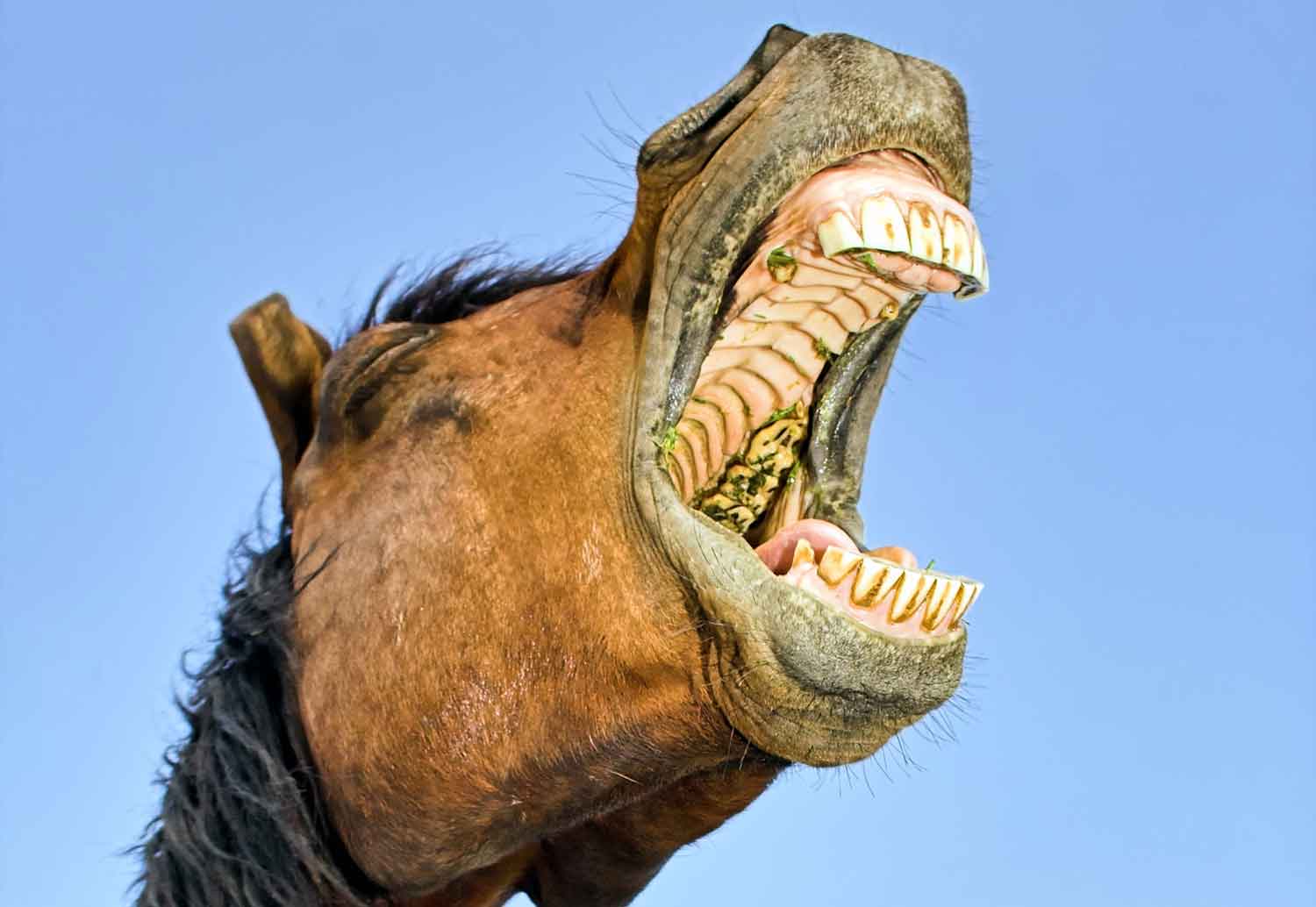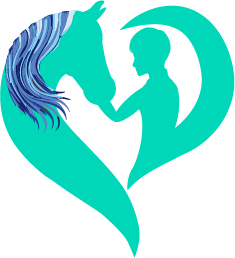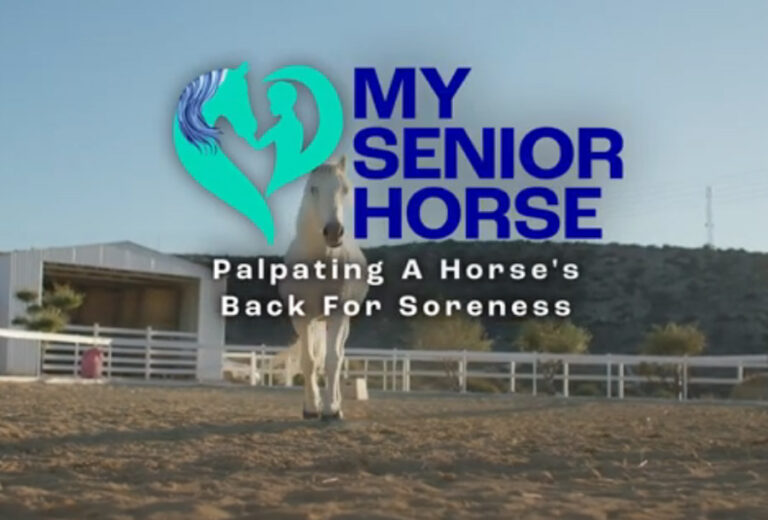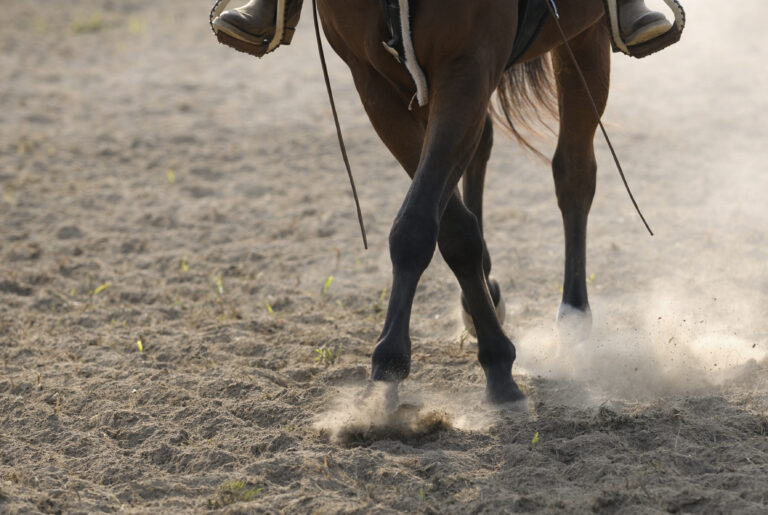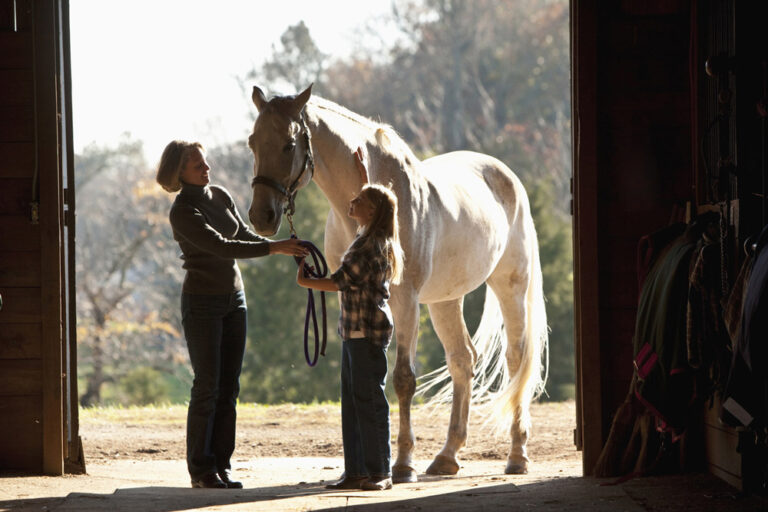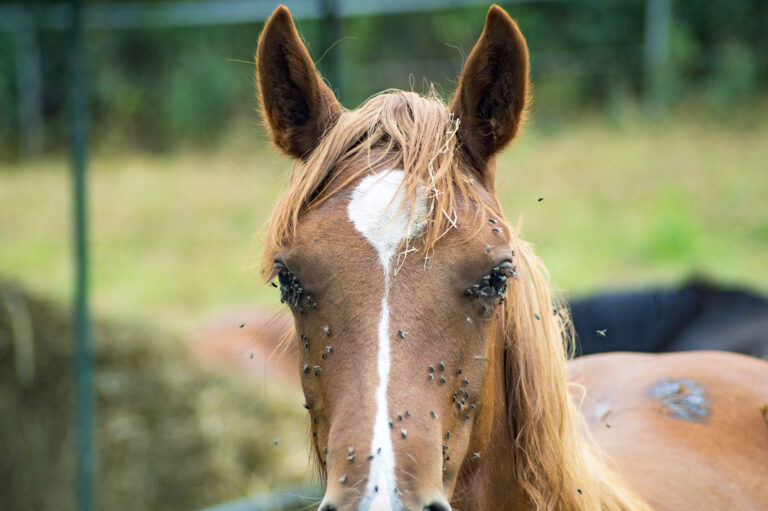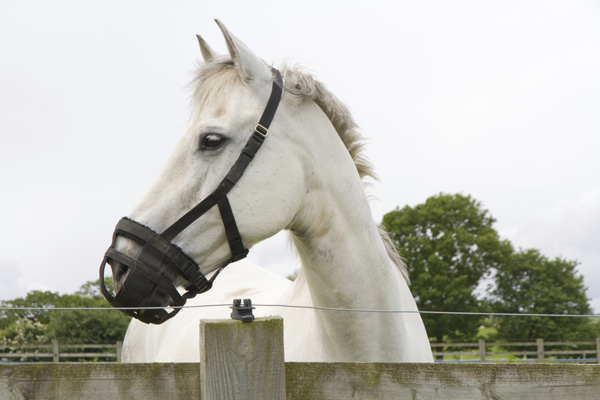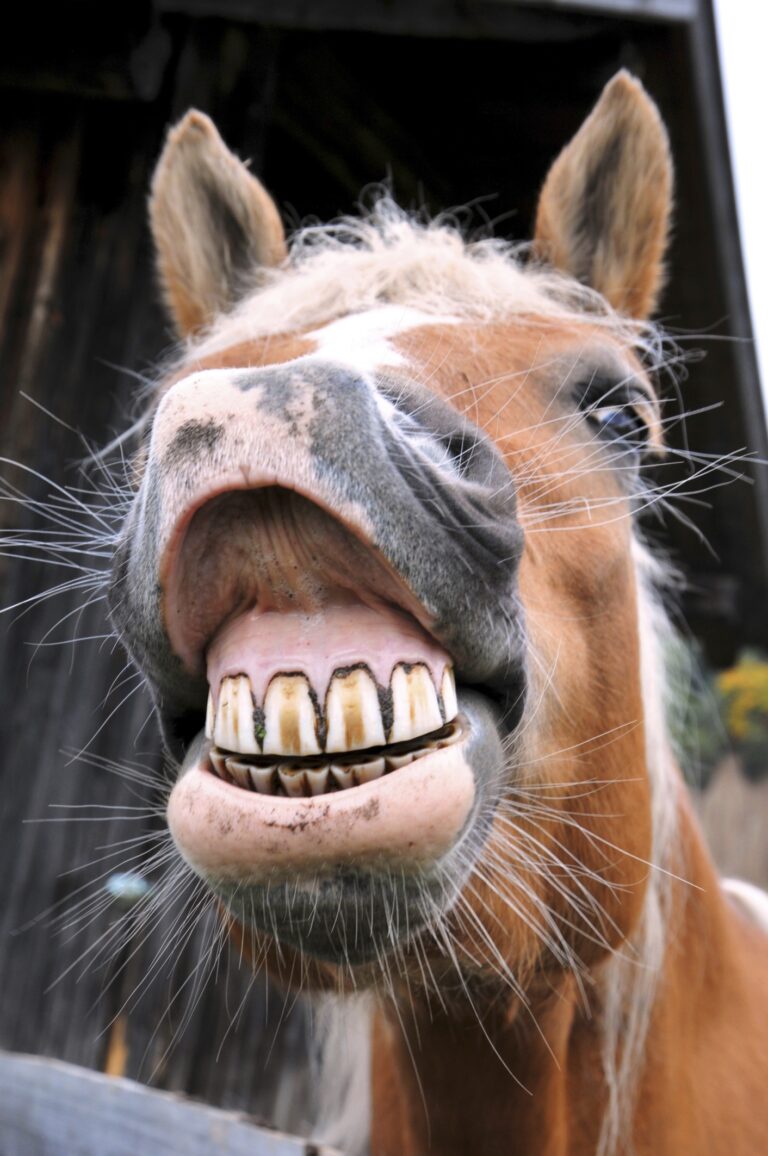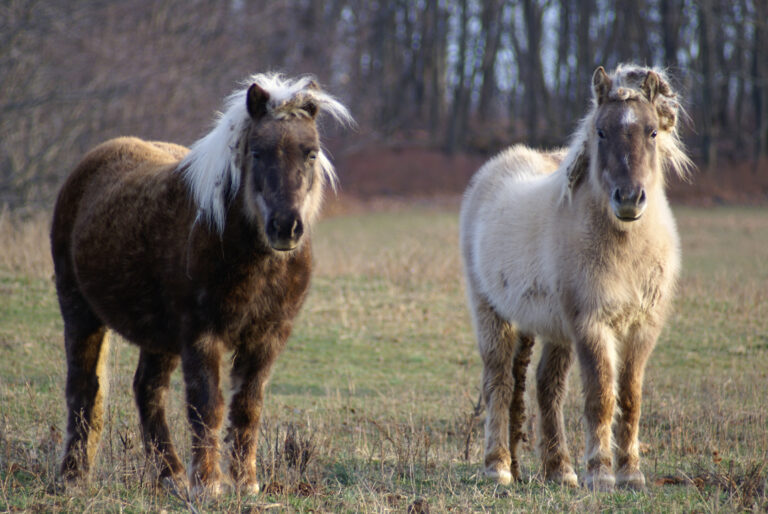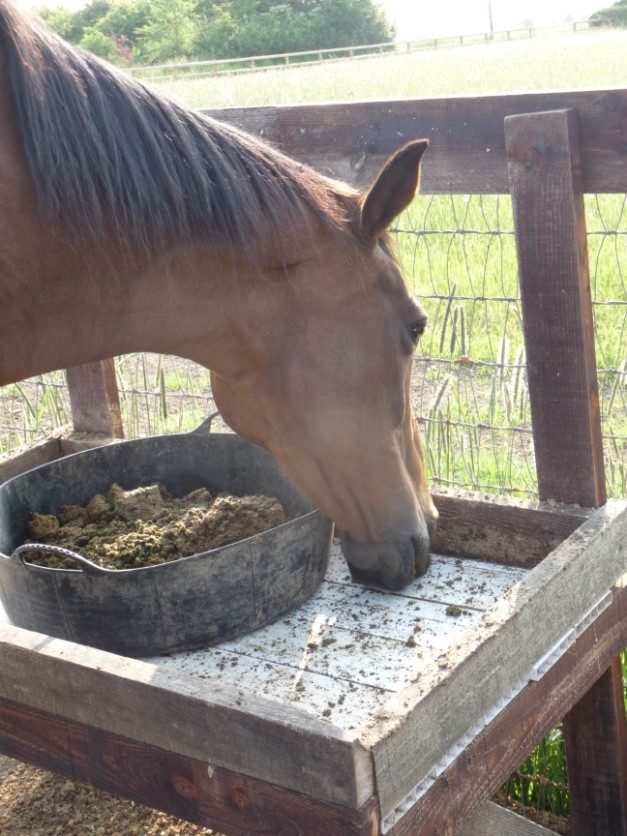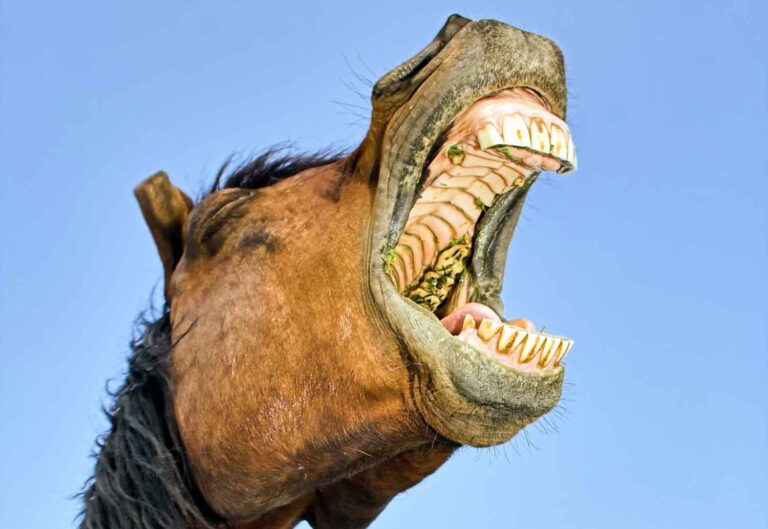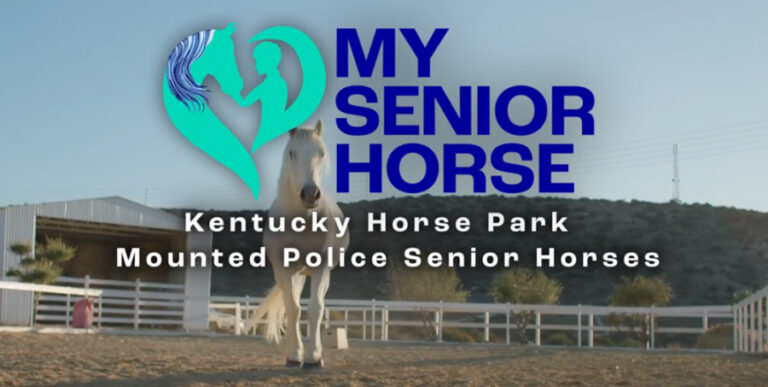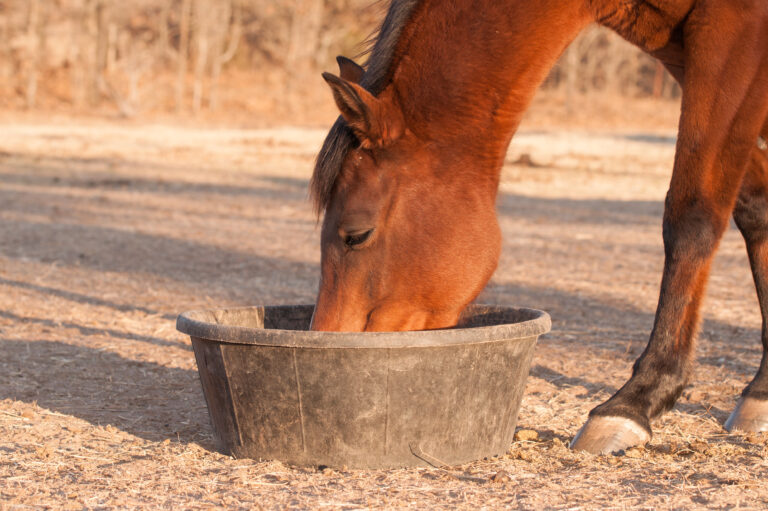Weight loss in horses can be caused by many reasons. Join Drs. Pat Harris and Nicky Jarvis for a three-part podcast series on managing the weight of horses. This second episode focuses on health and management issues for equine weight loss.
Harris is a past president of the British Equine Veterinary Association and is a European specialist in veterinary and comparative nutrition. She is the Nutrition and Science Advisor to Mars Horsecare and the WALTHAM™ Equine Studies Group. Harris has spent much of the last 30 years working to help improve the care and nutrition of older horses. She also is passionate about seniors because of her dedication to her own older horses. Harris has advised on the care of many other seniors and has authored numerous articles on their care. Her involvement in several global senior research teams gives her special insight into some of these studies. Harris is also on the Executive Advisory Council for My Senior Horse.
Jarvis is head of Veterinary and Care at Redwings Horse Sanctuary in Norfolk, England. She qualified from the Royal Veterinary College, London, in 1990 and worked in mixed practice for two years before moving to Newmarket, where she completed a two-year internship at Rossdales Equine Hospital. Jarvis then joined Redwings Horse Sanctuary in Norfolk in 1996. She is now head of Veterinary and Care there, working with what she calls an “incredible” team of veterinary surgeons and nurses to care for more than 1,500 resident horses, donkeys, and mules. Jarvis attained her RCVS Certificate of Advanced Veterinary Practice in Equine Medicine in 2012 and her CertAVP in Equine Surgery Soft Tissue in 2013. Her specialist interests include equine nutrition, geriatric medicine, internal medicine, and colic.
(Editor’s note: The content of this podcast is the expert’s approach to the topic. Please consult with your practitioner if you have questions.)
Equine Teeth and Weight Loss
Jarvis said while Redwings does have a vet and support team to work with welfare cases, sometimes dental issues are just a matter of aging. She said it can help if owners video a horse eating various types of feed.
“Quidding is the most obvious sign of dental problems,” explained Jarvis. Quidding is when a horse is trying to eat long-stemmed forage (grass or hay), takes it into the mouth, rolls it around into a ball, then spits it out because it can no longer chew the forage enough to swallow it.
There are ‘plenty’ more signs that senior horses have dental issues, which can lead to weight loss.
“There might be food pocketing in the cheeks,” said Jarvis. “The horse might be drooling or have nasal discharge. The horse might take longer to eat than normal, or have a foul odor to the mouth. The gums can be inflamed and the horse’s teeth be sensitive to cold.” That might mean the horse doesn’t drink as much water as needed if the water is cold.
She also said monitoring the horse’s droppings can be helpful. Normal droppings followed by a watery ‘jus’ of liquid, or droppings with long pieces of forage in the fecal balls, can both indicate the horse is unable to chew forage effectively and warrant a dental check.
Sometimes the only remedy for painful dental conditions is tooth removal. But in such cases, once the source of pain is removed “The turnaround is literally night and day,” said Jarvis referring to the comfort, demeanour, and appetite of the horse.
Feed, Teeth, and Weight Loss
As horses age, they get what is called ‘smooth mouthed.’ “They lose the little enamel folds in the teeth, particularly in the upper cheek teeth,” said Jarvis. “So the teeth become very smooth, almost like a marble kitchen work surface. As you can imagine, they are not going to be very effective in grinding that hay down.”
This can start as early as late teens, but usually is seen in the 20s. “After the 20s you can even start to lose teeth,” Jarvis said.
She added, “You can also get gaps form between the teeth known as diastema. If you get food packing in those gaps, then they can lead to gum recession, very painful periodontal disease.”
These issues can be managed with regularly dental care. Jarvis said owners of senior horses probably should have dental exams performed on seniors twice a year. “It really is money well spent,” Jarvis said.
Arthritis and Weight Loss
“As part of any examination I would do for weight loss, I would do a short walk and trot,” Jarvis noted. “If owners have older horses retired in a field, it might not be often they would bring it up and trot it on a concrete surface. Why would you? But it can be a really useful thing.”
Talking to owners can help veterinarians find issues in older horses. Maybe an older horse has started to be a little ‘naughty’ for the farrier. “Being ‘naughty’ can be a sign of pain,” explained Jarvis. “That should be in the mix if there has been a behavior change.”
Other Weight Loss Considerations
Harris discusses options for senior horses’ diets. These could include changes in feed, forage, and number of meals per day.
She also mentioned that there are other things you might want to consider in the older horse with weight loss other than diet. One of those is parasites. Senior horses may become more resistant to anthelmintic treatments, which could allow parasites to be more of a problem than when the horse was younger.
Your veterinarian might recommend blood tests for various health problems. One of these could be PPID (pituitary pars intermedia dysfunction, also known as Cushing’s disease). Another could be insulin dysregulation (ID). These often go hand-in-hand in the senior horse.
One Pony’s Story
You will be captivated by one pony’s story that came to Redwings. Jarvis tells us about a 24-year-old pony that on a body condition scale of 0 to 5 scored at a 0 when he came to Redwings.
There is a happy ending, and now Charlie is 27 years old and is a “happy chappie!”
Nutrition and Underweight Horses
“The point of a nutritionist is that you have to be quite holistic,” explained Harris. “While the diet is important, to me it’s looking at the whole picture of the diet and how they are being managed.”
She said for example, it’s not just how much forage, but the forage type. “And is it appropriate for that individual animal?” she queried. “And this can depend on if it is fresh or preserved.”
The management of feeding forage is also very important. Harris said we often try to feed from the ground because it helps their respiratory system. She said if the horse has arthritis in its neck and the hay is put on the ground, the horse can’t get to it easily. But if the hay is put in a hay net at the wrong height, it actually can cause more stress on the horse’s neck.
“When I’m looking at a horse as a nutritionist, you look at the totality,” she stressed. “If it is an underweight horse, I want to know the age and the history and any clinical conditions. I want to know how it is being managed.”
She agreed with Jarvis that forage is number one in the equine diet. “Then we think about the complimentary feed,” Harris said. “Is it the right type? Is it the right format?”
Nutrition Management Tips
If a horse has dental issues, it may not be able to eat long-stemmed hay. That means owners have to feed a mash or a soaked feed, said Harris. Important in this consideration is whether the owner is able to feed the horse the horse in the appropriate way for that that animal’s needs. Maybe a horse should be fed more than four times a day, but that’s impossible for most owners. So you have to figure out what will work for the horse and the owner.
“We both feel very strongly that you need to go look at the horse,” emphasized Harris. “If they are part of a herd, has that changed? Has their companion gone? What has happened to change those herd dynamics? If they are out at pasture, is it hilly? They may have been fine for 20 years, but now they have osteoarthritis.
“Water is my big thing,” Harris continued. “Older horses in particular, and especially ones with PPID, you need to make sure they have enough water. Are they getting chased away from the water? Is there deep mud around it and can they get to it? Is the water warm enough? If they get sensitive teeth, they can go off cold water.”
She also noted that many older horses take longer to eat. So while you could previously feed them out in the field, now you might need to separate them. “But separating for some horses is not ideal,” noted Harris.
While you are separating them to allow them to eat, they might not want to eat because they are separated from the herd. “In which case you might need to put their friend next door to them,” advised Harris. “My husband built me little pens with raised troughs for my old horse with no molars. She could take her time to eat with her friend next door.”
Other Issues
“Older horses are less able to deal with temperature,” said Harris. “They are less able to thermoregulate. That means they are more likely to suffer from cold and hot. You need to think about that more in these older animals. Sometimes it’s rugs on and rugs off.”
Harris said that diet and health issues are critical in horses that are losing weight, “but there are all of these other issues that I think we—as people who love our older horses—really need to be aware of.”
She also reminded owners that sometimes older horses are put on medications, and that can affect their appetites. “If feed gets left, someone else might eat it,” Harris advised. She said if a horse quids hay or grass, then another horse might eat that dropped feed and you don’t know it’s happening. So you need to monitor carefully.
“Older horses can get quite attached to their owner, feeder, carer,” she noted. She said they recognize voices, and if the new person has a louder or sharper voice, that is a change. Harris said be aware of changes in personnel and regime that could put some older horses off their routines. “Stress can impact their appetite,” she noted.
Competition Horses
Some horses 15 years of age or older are still in active competition. Harris said it’s still all about monitoring the horse.
Harris said, “We need to monitor their teeth. We need to check their body condition score. Also we need to check their worming program. We need to check the vaccines are up to date because one of the issues with older horses, they may have less immunity.
In feeding senior competition horses, Harris said protein quality is important. Harris said she tends to feed competition horses the key amino acids as if they were working at the next energy level up, than they are actually working at. That’s to help these horses support muscle repair as they get older.
She said the same is true for vitamins and minerals. Harris also pays particular attention to vitamin E intake in competition horses.
Harris also discussed some feeding and management tips to help older competition horses.
Editor’s note: There is so much more to be learned from the podcast! Don’t miss the other two episodes in this series with Harris and Jarvis.
Further Content
- My Senior Horse Podcast: Horse Weight Part 1. Drs. Pat Harris and Nicky Jarvis. MySeniorHorse.com
- A Guide to Equine Body Condition Scoring. Sarah Nelson. MySeniorHorse.com
- Feeding the Donkey. Dr. Faith Burden. MySeniorHorse.com
- My Senior Horse Podcast: Insulin Dysregulation. Dr. Nicola Menzies-Gow. MySeniorHorse.com
- Endocrine Disease: Focus on PPID in Older Horses Video. Dr. Cosette Faivre. MySeniorHorse.com
- Owner Knowledge of PPID. Kimberly S. Brown. MySeniorHorse.com
- New PPID Research Receives Special Recognition. Sarah Nelson. MySeniorHorse.com
- Diagnosing and Managing PPID in Horses. Kimberly S. Brown. MySeniorHorse.com
- My Senior Horse Podcast: Laminitis Risks. Dr. Edd Knowles. MySeniorHorse.com
- PPID and Insulin Dysregulation in Warmblood Breeds. Kimberly S. Brown. MySeniorHorse.com
- Horse Breeds, PPID, and Insulin Dysregulation. Kimberly S. Brown. MySeniorHorse.com
- What is PPID and Why Should I Care? Dr. Hal Schott. MySeniorHorse.com
- Developing a Feeding Plan for Your PPID Horse or Pony. Dr. Pat Harris. MySeniorHorse.com
- Possible New Insulin Dysregulation Treatments. Kimberly S. Brown. MySeniorHorse.com
- Owner Understanding of PPID in Horses. Kimberly S. Brown. MySeniorHorse.com
- Diagnosing Cushing’s Disease in Horses, Donkeys, and Mules
- Owner Understanding of Cushing’s Disease in Horses
- My Senior Horse Podcast: PPID Part 1. Dr. Hal Schott. MySeniorHorse.com
- My Senior Horse Podcast: PPID Part 2. Dr. Hal Schott. MySeniorHorse.com
- My Senior Horse Podcast: PPID Part 3. Dr. Hal Schott. MySeniorHorse.com
-
Editors of My Senior Horse are journalism professionals, most of whom are lifelong horse owners.View all posts

